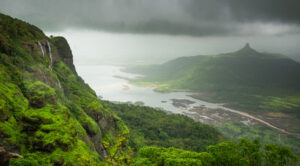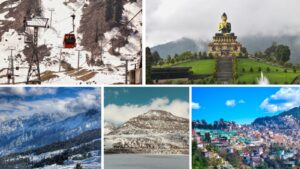India’s Unique Train Offers Free Travel Without Tickets, Operating Between…

India's Unique Train Offers Free Travel Without Tickets, Operating Between…
The Bhakra-Nangal train offers a nostalgic, scenic journey at no cost, bridging history and community.
An extraordinary train journey between Punjab and Himachal Pradesh has been captivating passengers for 75 years, offering a free ride along one of India’s most picturesque routes. Known as the Bhakra-Nangal train, this unique service traverses a 13-kilometer stretch daily, crossing the Sutlej River, meandering through the Shivalik hills and passing three tunnels and six stations.
Established in 1948, the train was initially introduced to aid the construction of the Bhakra-Nangal Dam, a monumental project vital to India’s post-independence development. The railway line was constructed to transport heavy machinery and workers efficiently. However, once the dam was completed, the service took on a new role, providing a free transport option for locals and tourists alike.
With its three wooden coaches featuring seats reminiscent of the British era, the train is a living museum of India’s industrial past. Originally powered by steam engines, it transitioned to diesel in 1953, but its charm and historical significance remain intact. Managed by the Bhakra Beas Management Board rather than Indian Railways, the train operates without a ticket-checking staff, staying true to its tradition of being a cost-free service.
Today, around 800 passengers use the Bhakra-Nangal train daily. For locals, it serves as an essential mode of transportation, while for tourists, it offers a nostalgic and scenic journey through the heart of the Shivaliks. The route includes highlights such as two horse-shoe shaped tunnels and the 158.5-meter-high rail-cum-road bridge, which adds to its allure.
This daily service has fostered deep connections with the community over the decades, becoming a lifeline for residents and an enduring symbol of India’s engineering marvels. The train continues to operate faithfully, ensuring that even in an era of rapid modernization, its passengers can enjoy a slice of history and the natural beauty of the region, completely free of charge.












